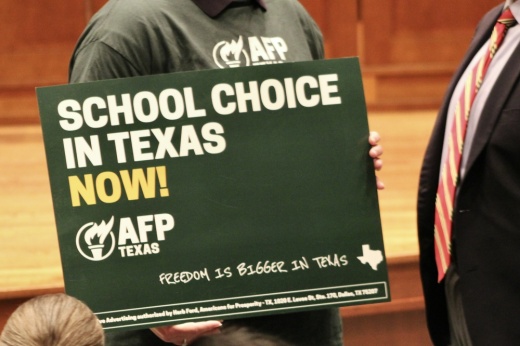Lawmakers are scheduled to debate House Bill 1, a $7.6 billion proposal to increase funding for public schools and create a voucher-like program called education savings accounts, on Nov. 17.
The overview
Eligible families could receive around $10,500 per year to cover private school tuition, transportation, tutoring, books and other educational expenses under HB 1. The bill would invest billions of dollars in Texas public schools, including boosts for per-student funding and special education—but it is unclear if these components will sway critics of the controversial voucher program.
Gov. Greg Abbott, a Republican, has pushed lawmakers to approve education savings accounts throughout the year. The Texas Senate passed its version of the plan multiple times during the regular and specially called legislative sessions, but a coalition of House Democrats and rural Republicans repeatedly blocked the legislation.
The details
Opponents of vouchers argue the program would divert money away from “already underfunded” public schools, particularly in rural areas.
During a Nov. 9 committee hearing, Rep. Ken King, R-Canadian, said there was “no chance in hell” vouchers would benefit students in his community. King is one of 24 House Republicans who has voted against using public funds for private school vouchers.
“I will never ever consider a voucher program and leave public schools without fully funding them,” King said.
Despite bipartisan opposition to vouchers, a House committee Nov. 9 voted 10-4 to send HB 1 to the full chamber. All Democrats on the committee voted against the bill, while rural and urban Republicans agreed to advance it.
If House lawmakers strip vouchers from the bill or reject the proposal entirely, Abbott vowed to veto the bill and call the Legislature back for another special session.
“We would start all over again,” Abbott told reporters at a Nov. 10 news conference. “We’d be spending December here, maybe January here, maybe February here. And I know one thing about both the House and Senate—they want to get out of here.”
The current special session, the fourth one this year, began Nov. 7 and can last up to 30 days.
Stay tuned
The House is scheduled to meet at 10 a.m. Nov. 17 to discuss HB 1. Also on the agenda are HB 2, a measure aimed at increasing funding for school safety, and a related constitutional amendment.





